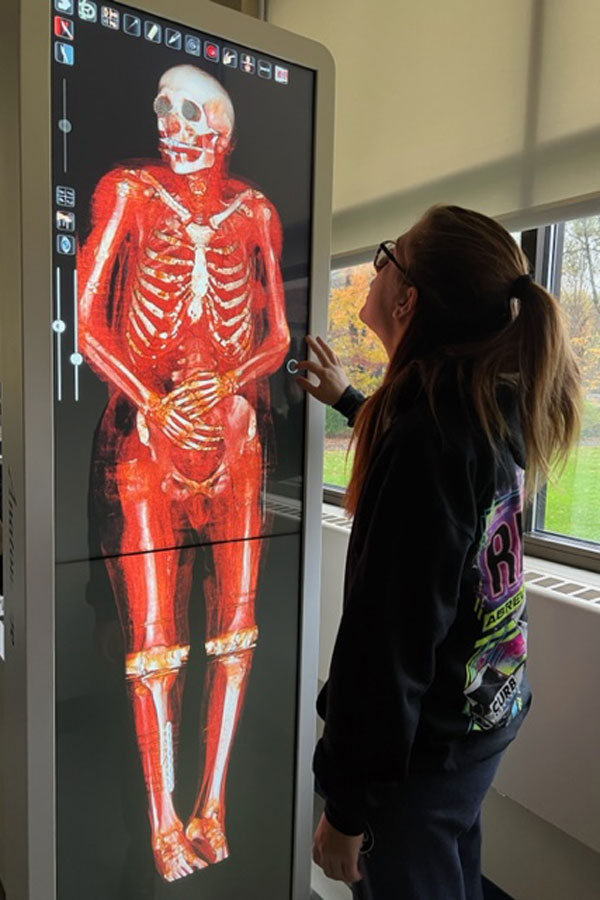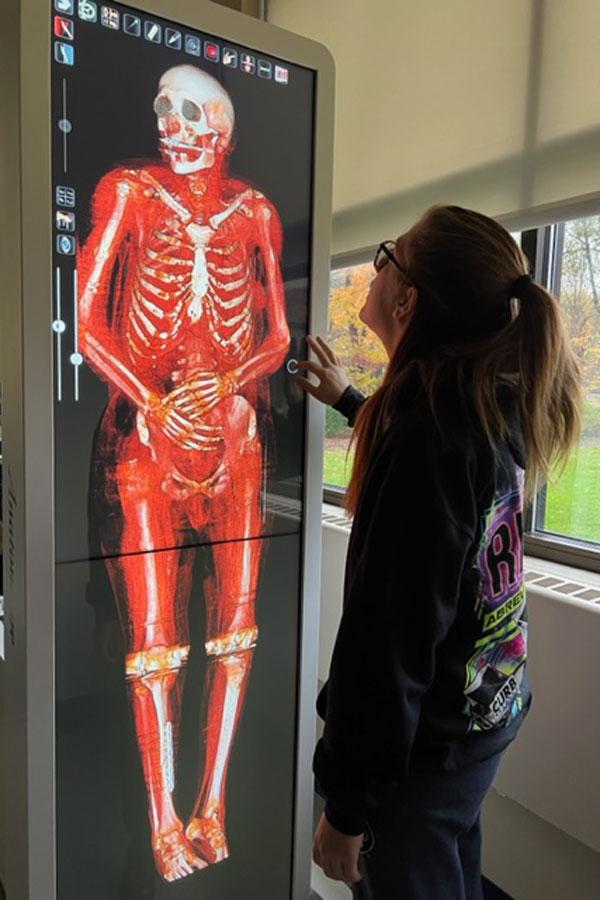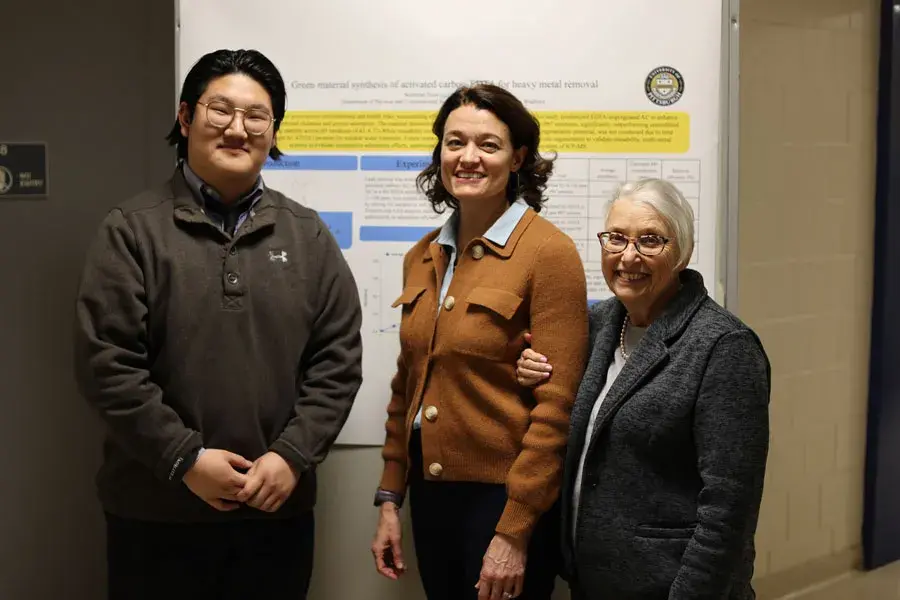
Forensic Science - BS
Take a lead role in crime scene investigation or laboratory analysis.
Why study forensic science at Pitt-Bradford?
Our campus hosts the only forensic science program in the University of Pittsburgh system. Learn from expert faculty with years of real-world experience about everything from admissible evidence to zooarchaeology (the study of animal remains at sites). Experience hands-on learning in crime scene investigation, laboratory techniques and preparing for legal testimony. Use the same instruments professionals use in investigations that are as real as it gets. Then take your skills on a trial run in an internship.
What will I learn?
Don’t just listen to the true crime podcasts and watch true crime documentaries – try your hand at forensic chemistry, DNA analysis and forensic toxicology in our forensic laboratories. In our CSI House, you’ll put your forensic science studies to work collecting evidence, investigating crimes and profiling criminals. You will use our advanced gas chromatography-mass spectrometer to find traces of drugs, poison, explosives, and more and conduct an autopsy on a pioneering virtual dissection table, where you can analyze injuries.

What can I do with a degree in forensic science?
You’ll be prepared to work as a forensic scientist in industry, government, and forensic science labs.
Job titles:
- Bloodstain pattern analyst
- Crime lab technician
- Crime scene investigator
- DNA analyst
- Intelligence officer/analyst
- Serologist
- Toxicology medical technician
Employers:
- State/federal government
- Police departments
- Morgues
- Crime labs
- Coroners’ offices
- Law offices
- Pharmaceutical industries
- Hospitals

For four weeks over the summer, Madison Miller learned some of the differences in the health care system between the United States and other European countries.
-
ADMJ 0230
Intro To Forensic ScienceThis course examines forensic techniques commonly used in criminal investigations such as: crime scene reconstruction, hair, fiber, soil, inorganic and organic analysis, spectroscopy, microscopy, toxicology, fingerprints, firearms, and DNA. The description, scientific underpinnings, and limitations of forensic techniques are discussed. The course gives students a background in scientific tools available to investigate crime. -
ADMJ 1430
Criminal Forensics 2This course will allow students to demonstrate advanced criminal forensic investigative skills. Students will focus on several types of advanced indoor and outdoor crime scene scenarios, specifically concentrating on violent criminal investigations. The various scenarios will include multiple homicides, criminal profiling; sex-related homicides; homicides made to appear as accidents; homicides made to appear as suicides; handling buried body cases; murder-suicide; infant abductions and SID cases.
Program-Related News

Students study McKean County water quality
Grants allow students to spend summer researching.

Students get head start with academy
Early arrival helps first-year students get acquainted with campus and each other.

New fund supports undergraduate research
Pioneering doctor wants to give back to chemistry program.